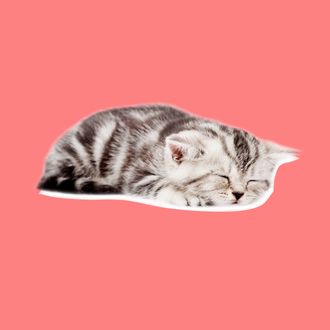
In recent years, scientists have linked a lack of sleep to all sorts of undesirable things, like obesity and anxiety and tiny shrunken brains. But this week, scientists in Paris have provided us with new evidence showing the restorative powers of the nap, in a small study that suggests two quick power naps following a night of poor sleep may reverse some of the negative health effects of sleeplessness.
The paper is published in the Journal of Clinical Endocrinology & Metabolism, and according to the news release from the Endocrine Society, the experiments went like so:
The researchers used a cross-over, randomized study design to examine the relationship between hormones and sleep in a group of 11 healthy men between the ages of 25 and 32. The men underwent two sessions of sleep testing in a laboratory, where meals and lighting were strictly controlled.
During one session, the men were limited to two hours of sleep for one night. For the other session, subjects were able to take two, 30-minute naps the day after their sleep was restricted to two hours. Each of the three-day sessions began with a night where subjects spent eight hours in bed and concluded with a recovery night of unlimited sleep.
The researchers measured the volunteers’ levels of the hormone norepinephrine — which is associated with stress and triggers spikes in blood sugar and heart rate — and found two and a half times the normal amount in the men when they’d slept only two hours the night before and hadn’t napped. But when the study participants were able to take the two quick naps the day after sleeping poorly, the researchers found healthy levels of the stress hormone in the volunteers’ body fluids. And that wasn’t the only benefit found from the daytime naps:
Lack of sleep also affected the levels of interleukin-6, a protein with antiviral properties, found in the subjects’ saliva. The levels dropped after a night of restricted sleep, but remained normal when the subjects were allowed to nap. The changes suggest naps can be beneficial for the immune system.
Again, it’s a tiny study, with just 11 participants, so we can’t draw too many solid conclusions here yet. But it does appear to be another small victory for the pro-napping camp.




